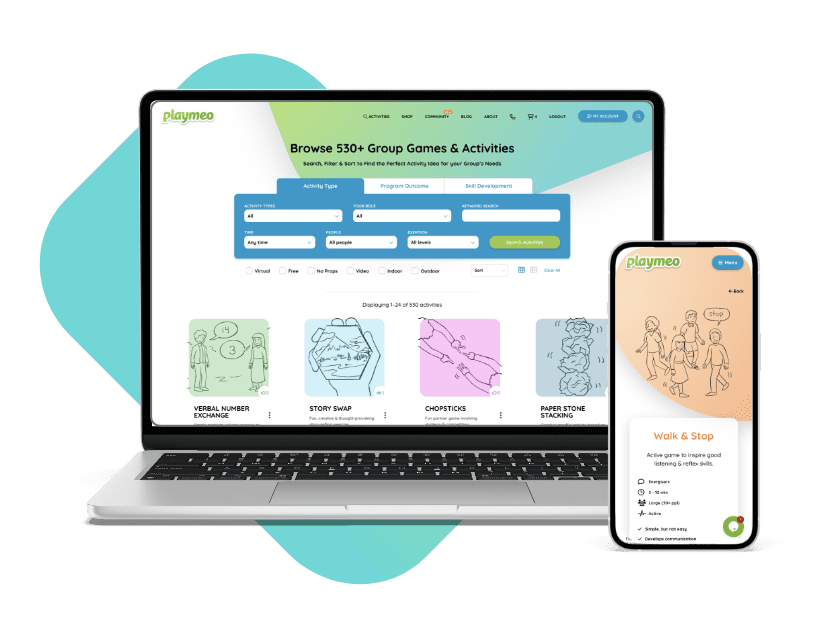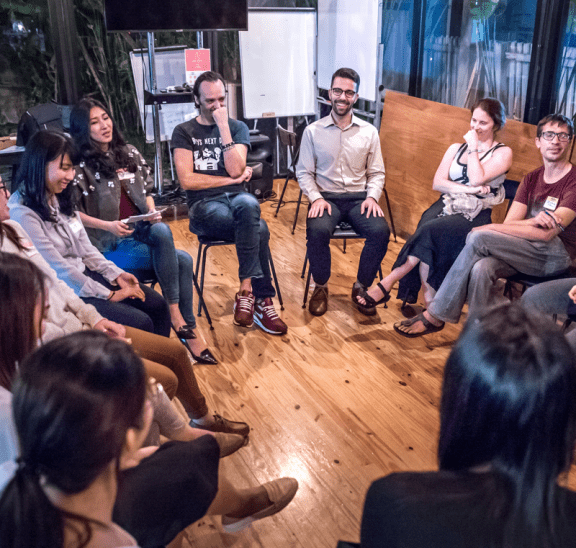Benefits of Emotional Intelligence – Insights from a Community Engagement Expert
If facilitation skills were considered a superpower, emotional intelligence would be the secret sauce!
Hassan Ghiassi knows the amazing benefits of emotional intelligence. He has focused on one activity each and every week for over 10 years – facilitating highly engaging discussions and training others on how to do the same.
In his highly reviewed online course, Aristotle’s Cafe – Small Group Discussion Facilitation, he gives a step-by-step guide in leading discussions. Benefits are increased emotional intelligence, mindfulness, critical thinking, and of course, facilitation skills.
Here are his thoughts on the importance and the benefits of emotional intelligence.
Why Emotional Intelligence is Important
Emotional intelligence (EQ) is a critical component of everything we do, our ability to lead, in our healthy (or unhealthy) relationships. It all boils down to how well you know yourself and others around you.
Here are a few of the great benefits of emotional intelligence:
- Empathy
- Self-awareness
- Relationship Management
- Leadership Abilities
- Mindfulness
- Comfort with Uncertainty
What is the result of all of these benefits?
The major one is effective communication – with your students, colleagues, stakeholders, and community. You’ll be much better at understanding what motivates the people you’re working with and finding healthier ways to communicate with them. This will lead to a shared vision and increased buy-in.
One of the Benefits of Emotional Intelligence is Understanding Motivation
As a starting point, we can agree that motivation is highly specific to each person. For some colleagues, they might be driven to work harder in order to get a salary increase, but for others, it might be that they just want recognition and praise for a job well done.
Having had the opportunity to work across several different continents and cultures throughout my life, I can say recognizing these motivations can lessen the challenges, which makes things a whole lot easier.
Understanding and empathizing means you’re able to find a very common thread in terms of how people behave and react and what they deem are important and relevant.
In my experience, everyone wants to strive toward happiness and away from pain. Cultures might differ in what means exactly, but in general, people are looking to provide for their family, find a life partner, and be appreciated for their work.
A wonderful benefit of emotional intelligence is realizing that although someone may have a completely different upbringing and background than you do, you can find common ground, whether in your personal or professional life.
The Importance of Emotional Intelligence is Clear, Now Build It
The first thing you can do is simply become aware that emotional intelligence is a critical component of the benefits I mentioned before: Empathy, self-awareness, leadership abilities, and more.
Once you’re aware that those skills can be developed and improved it’s already a step in the right direction.
The next recommendation I have is that emotional intelligence is like a muscle – work it out, use it and it will grow! The benefits of emotional intelligence are something I always sought out. It’s one of the reasons why I founded Aristotle’s Café.
Aristotle’s Cafe is a free discussion format that was developed to give people of all ages, religions, and perspectives to have a safe space to practice and build their emotional intelligence. We allow people to sit down, in-person, with each other every week, to have discussions that matter, guided by our Aristotle’s Café Facilitators.
For participants and even more so for facilitators, each discussion allows an opportunity to grow. Individuals get the chance to self-reflect, deal with disagreements or adversity, and deal with internal emotions and certain triggers.
We currently have regular discussions in Australia, Iceland, Myanmar, Thailand, Mongolia, and Indonesia.
So, what do educational institutions and other organizations stand to lose if they don’t invest in cultural intelligence?
Less high employee turnover rate, loss of productivity, and in the end a lower chance of success.
I see organizations struggle with when you have an idea so new to the market or so revolutionary, how to really communicate it effectively.
I also see educational institutions who are doing something great but don’t know how to get people behind the idea.
To educate and persuade, you really have to understand your target audience. At the same time, you also have to make sure your team feels happy and valued as part of a dynamic environment. If you aren’t treating your employees right, they’re going to burnout, feel less motivated, or simply quit.
The Best Way to Become a Better Communicator
Learn about the 3 Pillars of Persuasion (Ethos, Pathos, and Logos) and how to truly utilize them both to communicate more successfully and also to better respond to feedback.
In the long term, practice makes perfect. That is why many Founders, Educators, CEOs, Managers, and HR Teams are requesting us to run discussions based on the Dialogic Approach. This is great for team building and improving communication skills.
I’ve been holding discussions each and every week for 14 years and can promise, nothing makes you a better communicator than taking part in challenging and impromptu discussions with a diverse group of people.
You can learn more about Hassan Ghiassi and Aristotle’s Café here.

No Props? No Problem!
Get 150+ no-prop games & activities + exclusive 30-day free trial of playmeo. Scan QR codes to view activity videos, leadership tips, etc.

EMOJI Feeling Cards
50+ cards that portray a range of emotions from happy, sad, angry & confused. Ideal for building emotional literacy skills.

Wow, you’ve been busy!
You can open 1 more
activity for free.
Limit resets every 24 hours
or click below to get unlimited access.











Original post August 2019, last updated May 2024.